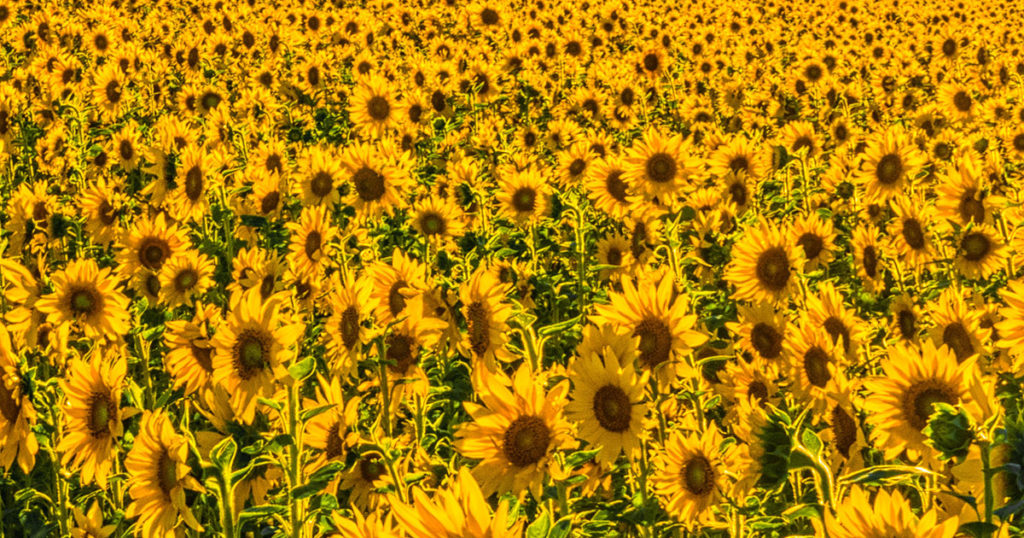
As an eight- then nine- then 10-year-old at a girls’ summer camp in Tennessee in the early 1970s, I learned a song that I still sometimes hum. “Happiness” is the title, and we children singing the song proclaimed that happiness was the greatest gift that we possessed. In the next breath, we thanked the Lord for having been blessed with this gift. But in a listening exercise I gave to my upper-intermediate students one day this spring, the class and I heard that happiness arises from satisfaction with oneself rather than from a gift, either to oneself or from another person. Or so the happiness expert on the CD, a psychology professor, informed the woman interviewing him. A new car or a chocolate bar is not going to provide happiness, he said, but will instead disappoint us with how fast the thrill fades and the flavor evaporates. It won’t give us the satisfaction we get from having close friends and family, feeling valued at work, and, most importantly, having targets to aim for.
I already knew he was right about the chocolate bar. Knowing about the car will save me from envious comparison, which, warned the expert, is the greatest barrier to happiness. So no, you can’t ask for it, can’t buy it, and won’t get any clues from your neighbors about how to attain it. Yet happiness is all around, the expert said, and can be measured as precisely as economists measure poverty or growth. Oh yes, he assured the woman, reacting to her surprise, living standards rise and fall, but we know that happiness levels across the globe have stayed the same for the past 50 years or so.
The trick, in essence, is to not want what others have but to be content with your own fortune, without attempting to enhance it. It sounds simple. Look around, take stock, and tell yourself, Hey, this is fine! If doing that doesn’t come easy at first, perhaps it will with repetition. It’s worth trying because happiness can lengthen your life more substantially than a healthy diet—up to 10 years, the man reported, which, since you’re happy, will be a blessing.
In the song “Cuéntame,” a hit from the late ’60s by the Spanish pop group Formula V and still in the air today as the theme song for a popular TV show, the singer asks a former girlfriend if, since leaving him, she’s found happiness, la felicidad. By happiness, he means a new love, and what quicker way to self-satisfaction than adoring eyes telling you that you are everything? “Cuéntame,” he says, tell me. What would it matter though? That sweetness, like the chocolate bar, doesn’t last. I found myself thinking again of the words sung by Ken Dodd, the Englishman who popularized the song of my camp days. Happiness is everywhere, he sang, in the rain and in the air. Everywhere? I tried to picture this happiness that can’t be bought or finagled but is nevertheless available and even always miraculously present, and I imagined it as a bit of texture to the world, like crosshatching in a comic that gives volume and suggests a source of light. Happiness is depth; you get it in the smallest of details, unnoticed until you look for them, and then, yes, everywhere. Today in Gijón, like yesterday, it was the fuzz from cottonwood trees that fills the air in spring, lightly wafting in your wake as you stir it up in the ordinary comings and goings of an ordinary life—this pale cottony fluff that could be out there solely to soften the sometimes harsh realties or to blot up anger, disappointment, and loneliness.
That’s how it should be. To open your door and have happiness there before you, part of the landscape of your life, under your feet when you step into the world, or floating by and tickling your face.
The cottonwood fluff carpeting the lanes dissipates, yes, but then comes summer’s carpet of green. Overall, worldwide, happiness levels are steady, the expert stated, and after the summer comes the autumn sea of orange and brown leaves, drifting across roads and fields. Then comes the windblown rain of late fall that puddles in spots of shimmering silver. Onward to snow, thick, quiet, a sprinkling at 300 meters of altitude, ankle deep at 600, knee deep at 1,000, blanketing high meadows, old snow compacting, new falling, levels holding steady. Or stagnant, you’ll say if you’re unhappy about those levels.
If that’s how you feel, though, you’ll hardly have noticed the drifting snow, the matching sky. If that’s how you feel, you will have stayed home and eaten a chocolate bar, worried about waxing the new car, maybe played some music on your newest device. Hummed along in perplexity with an old familiar song, while wondering what’s wrong with you. If happiness rains down on others, then why not on you? And if that is you asking, you’re right to get to it—you’ve got 10 years fewer to figure it out than you’d thought, which might be another blessing. Not much of a blessing, you say? And besides, you’re not the kind to get blessed? Okay, then. Have it your way. Someone else’s blessing.

